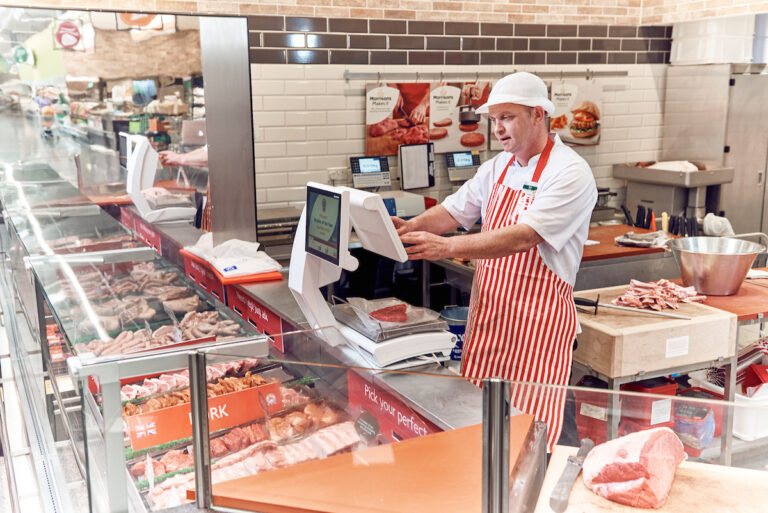The latest grocery market share figures from Kantar Worldpanel, published today for the 12 weeks to 25 February 2018, show that grocery sales have increased in value by 3.2% compared to the same time last year. This marks the 12th consecutive period in a row that total market sales have exceeded 3%, and that each of the big four retailers has seen positive growth.
Fraser McKevitt, head of retail and consumer insight at Kantar Worldpanel said: “The grocery market remains in good health, spurred on by February festivities such as Valentine’s Day and Chinese New Year, which lend themselves to a focus on ready meals. Over the month, sales of chilled ready meals which form part of a meal deal jumped by 26% as retailers offered customers the opportunity to wine and dine at home without the fuss, while Chinese ready meals also rose by more than a quarter.”
Tesco and Morrisons were neck and neck as the fastest growing of the big four – both clocking in sales growth of 2.7%. McKevitt said: “Tesco continues to perform well – more positive news following approval of its Booker acquisition last week. Despite a slight fall in market share of 0.1 percentage points, Tesco experienced particularly strong growth from its Extra superstores. The varied selection of groceries on offer at these larger stores has encouraged customers to return to fuller trolley shops, with average baskets worth £31.09 – currently, the highest value in the bricks and mortar market.
“Holding market share steady year on year at 10.6%, Morrisons has continued its run of form, entering its 16th consecutive period of growth. Its premium own-label line The Best proved particularly successful, with sales rising by 20% year on year as cooked meats, vegetables and cakes and pastries tickled shoppers’ fancy.”
Meanwhile, there are no signs of a let up in the shift away from discounted products for Sainsbury’s: only 34.5% of sales at Sainsbury’s were on promotion during the past 12 weeks, in stark comparison to 41.9% for the rest of the big four. Overall sales growth now stands at 1.1%.
“Over the past 12 weeks Asda attracted an additional 309,000 shoppers through its doors, helping the grocer achieve its highest sales growth since June 2014, now 2.3%,” said McKevitt. “At odds with its traditionally brand-focused approach, Asda has also encouraged shoppers to choose own-label alternatives, which are up by 6.4% year on year. Less than a year since its launch, the retailer’s Farm Stores range is bought by 30% of all British households – with sales surpassing £50 million – while its premium Extra Special line increased sales by 19%.”
Aldi and Lidl once again battled to be crowned the UK’s fastest-growing supermarket. Aldi pipped Lidl to the post this month as sales grew by 13.9% and 13.3% respectively. With both discounters working hard to expand their store portfolio, Aldi and Lidl also benefited from increased shopper numbers as well as growth in basket size.
Co-op returned to growth for the first time since July 2017 with sales up 0.4%, after a period of decline following the retailer’s sale of nearly 300 stores to McColl’s. Iceland held share steady at 2.2% compared to this time last year, increasing sales by 1.3%.
There were no signs of a slowdown for Waitrose, which saw sales growth of 2.3%. The supermarket has now experienced uninterrupted sales growth since March 2009. Meanwhile, internet-only grocer Ocado increased market share by 0.1 percentage points to 1.2%.


